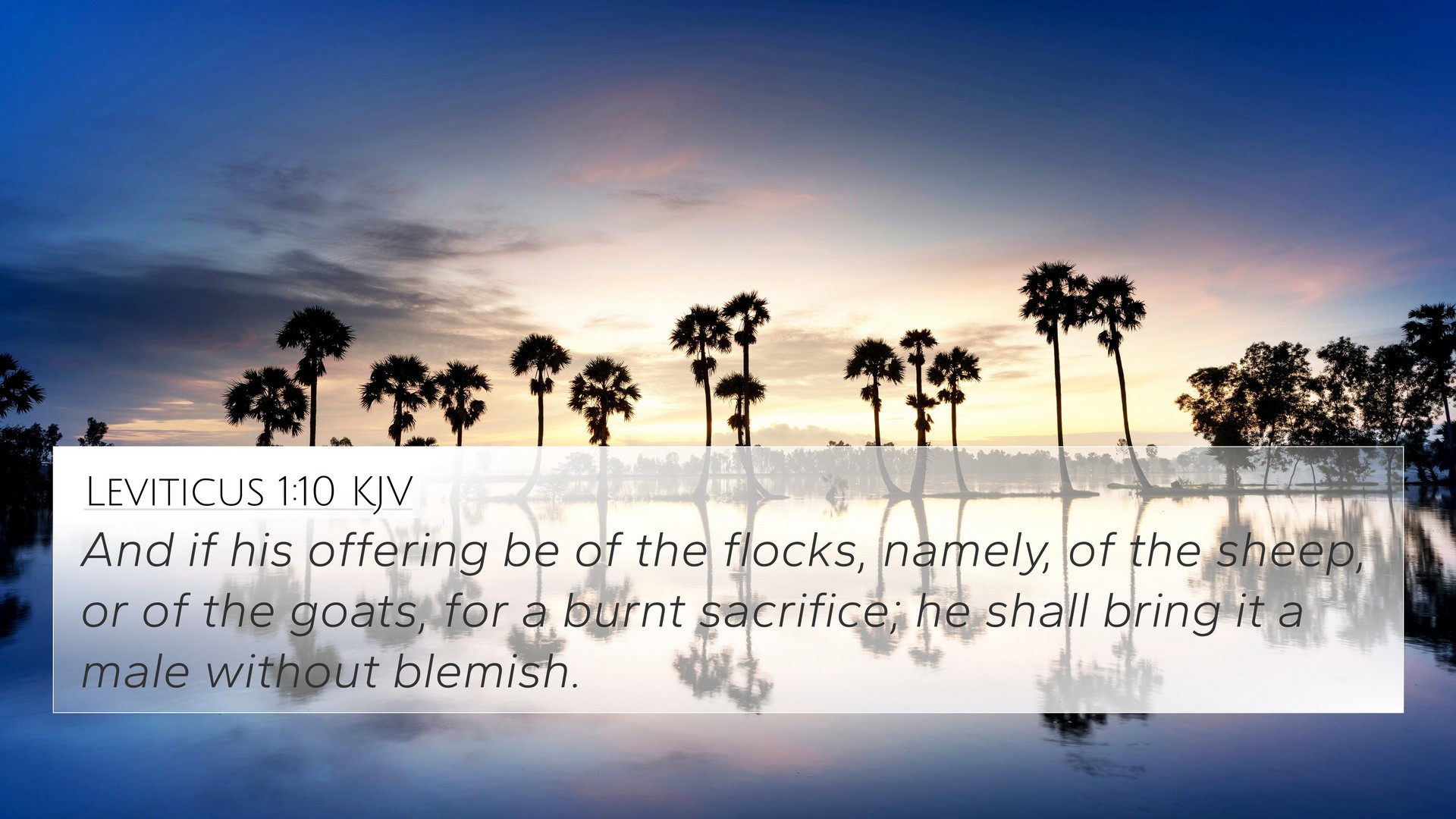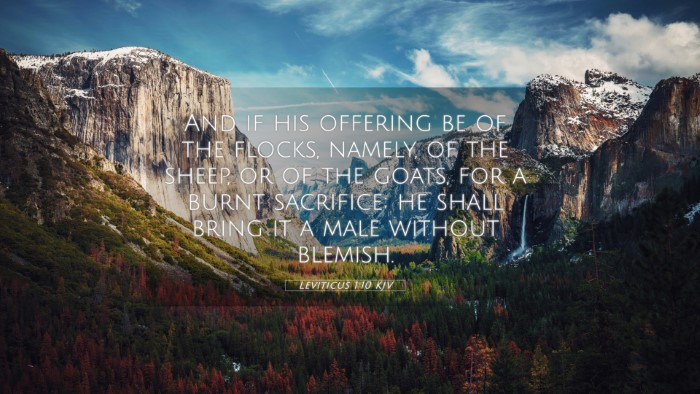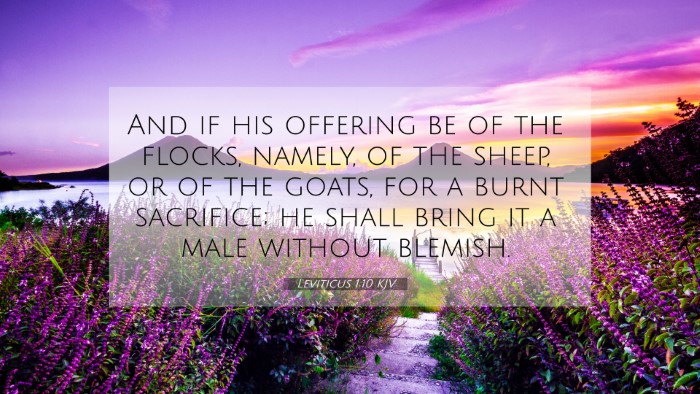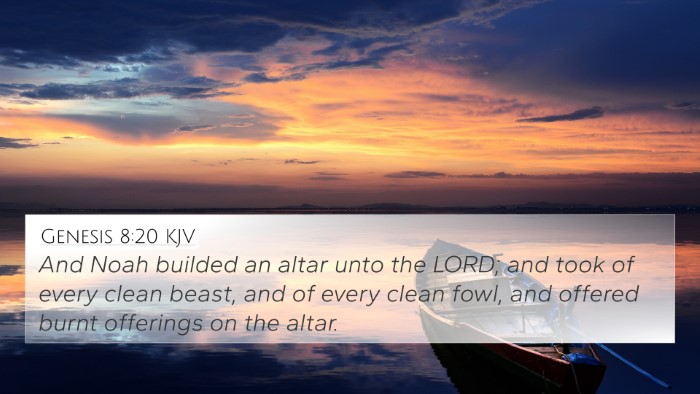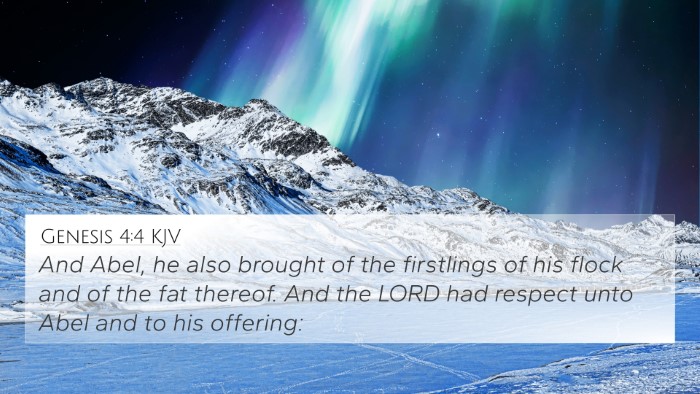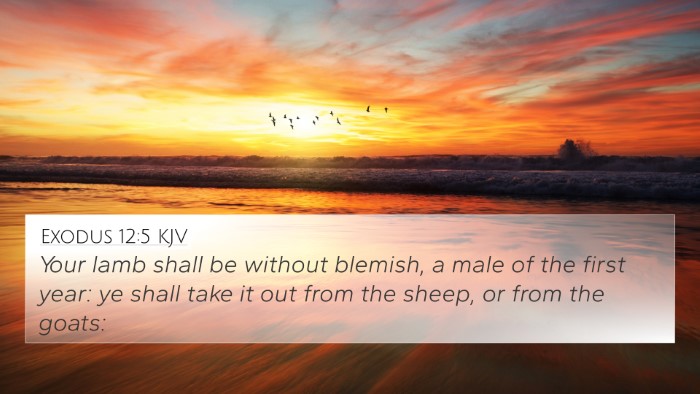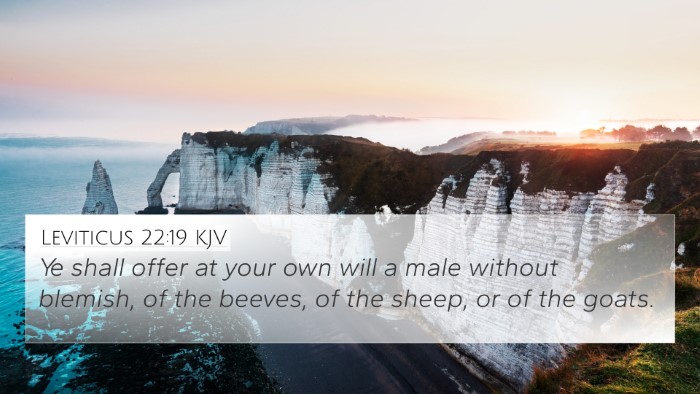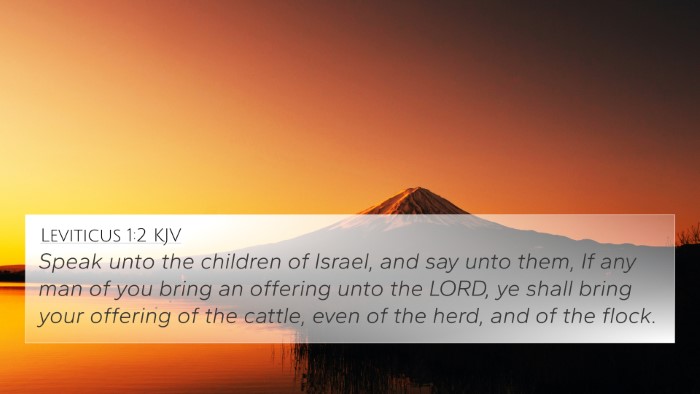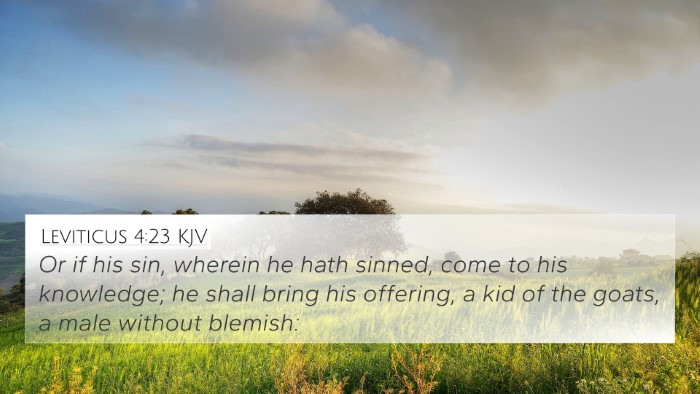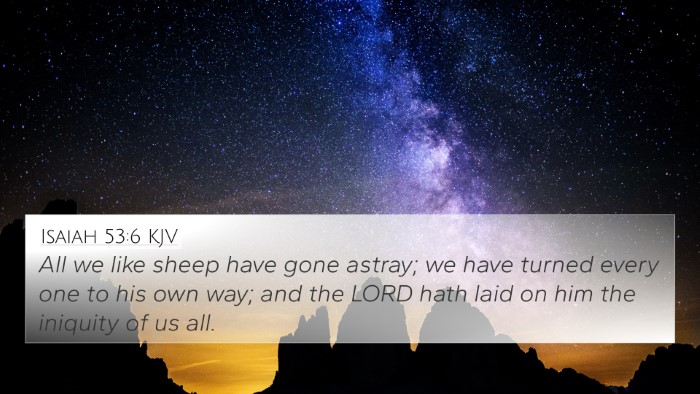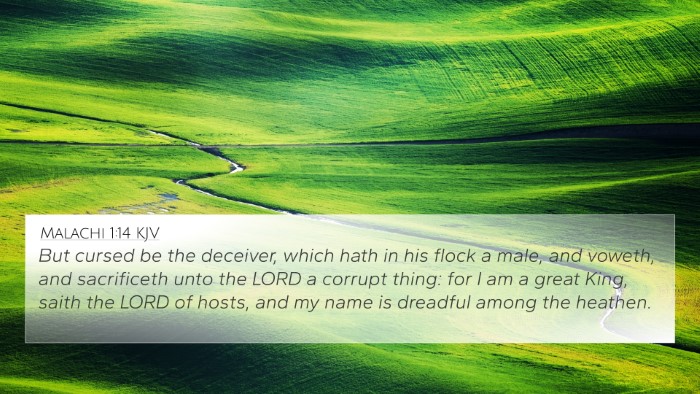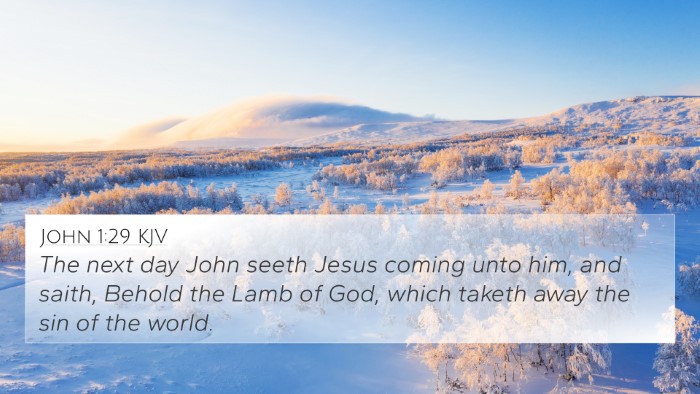Bible Verse Meaning: Leviticus 1:10
Bible Verse: Leviticus 1:10 - "And if his offering be of the flocks, namely, of the sheep, or of the goats, for a burnt sacrifice; he shall bring it a male without blemish."
This verse involves significant themes related to sacrifices in the Old Testament. Analyzing Leviticus 1:10 requires an understanding of the overall sacrificial system established for the people of Israel. The insights drawn from public domain commentaries, including those by Matthew Henry, Albert Barnes, and Adam Clarke, can help illuminate its deeper meanings.
Summary of Interpretations
1. Importance of Sacrifice: Sacrifices in the Old Testament served as a means for atonement and reconciliation with God. Matthew Henry emphasizes that sacrifices are essential in maintaining a relationship with God, representing the need for expiation for sin.
2. Specifications of the Offering: The text specifies that the offering from the flocks must be male and without blemish. Albert Barnes points out that this requirement signifies the need for purity and perfection in offerings made to God, symbolizing Jesus Christ as the perfect sacrifice.
3. Symbol of Christ's Sacrifice: Adam Clarke draws a prophetic connection to the sacrifices foreshadowing the ultimate sacrifice of Jesus Christ. Just as the male sheep or goat without blemish was to be offered, so was Christ, the Lamb of God, without sin.
4. Community and Personal Responsibility: The offerings were communal rites that reflected personal as well as collective faith. This was a way for individuals to express their devotion to God. Matthew Henry notes that both the community and the individual are involved in these offerings.
5. Symbolic Meaning of 'Without Blemish': The term 'without blemish' indicates not only a physical condition but also the spiritual condition required of the offerer. Albert Barnes highlights that this reflects a broader spiritual truth: one must come to God in sincerity, representing a heart free of sin.
Cross-References to Consider
In understanding Leviticus 1:10, consider these related verses:
- Exodus 12:5: "Your lamb shall be without blemish, a male of the first year." - Links the sacrificial system to the Passover lamb.
- Hebrews 9:14: "How much more shall the blood of Christ, who through the eternal Spirit offered himself without spot to God." - Highlights Jesus as the ultimate sacrifice.
- 1 Peter 1:19: "But with the precious blood of Christ, as of a lamb without blemish and without spot." - Further reaffirms the typology of Christ as the perfect lamb.
- Numbers 15:3: "...to make an offering made by fire, of a sweet savor unto the Lord." - Reinforces the idea of offerings being pleasing to God.
- Malachi 1:6-8: God disapproves of blemished offerings, illustrating the expectation of reverence and purity in sacrifices.
- Isaiah 53:7: "He was oppressed, and he was afflicted, yet he opened not his mouth; he is brought as a lamb to the slaughter." - Connects the identity of Christ to sacrificial lambs.
- John 1:29: "Behold the Lamb of God, which taketh away the sin of the world!" - Affirms Christ's sacrificial role in the New Testament.
Understanding the Context
To fully grasp the implications of Leviticus 1:10, it is pertinent to consider the cultural and religious context of the Israelite community. Sacrifices were central to the worship practices and demonstrated obedience to God’s commands. Each offering provided a way to demonstrate trust in God's provision for atonement.
The Role of Sacrifices in Worship
Worship during the time of Leviticus involved sacrificial offerings as a core practice. Commentary from Adam Clarke elaborates on how these structured rituals allowed the people to maintain their covenant relationship with God, paving the way for deepening faith within the community.
Connections to New Testament Teachings
Cross-referencing Leviticus with New Testament scriptures solidifies the understanding of how Old Testament principles laid the foundation for Christ's fulfillment of the law through His ultimate sacrifice. Not only does this verse link to Jesus's sacrificial image, but it also connects believers to the concept of holiness, as all offerings symbolize the necessity of holiness before God.
Thematic Bible Verse Connections
The themes of sacrifice, holiness, and atonement are recurrent throughout scripture. Understanding biblical cross-references enriches one’s grasp of each theme's profound significance:
- Understanding the sacrificial system's relevance in both Old and New Testaments.
- Exploring the continuity of God's desire for holiness in His people.
- Recognizing the inter-Biblical dialogue regarding atonement and redemption.
Conclusion
Leviticus 1:10 serves not only as a guideline for the Israelites but also as a foreshadowing of Christ's atoning work. Engaging with this verse through various biblical commentaries and cross-referencing verses enriches the overall comprehension of Scripture. It encourages deeper reflection on how the ancient practices informed the New Testament understanding of sacrifice and redemption. Embracing these connections can enhance one's Bible study endeavors and provides a framework for further investigation into the rich tapestry of scripture.
